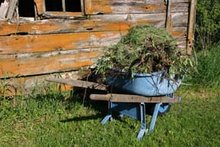research
Lately I have begun to cringe when I hear students and others say that they have researched a given subject. They mean, most of the time, that they have googled a subject and scanned the first page of returns to find answers to their queries. I cringe because I am more and more frequently guilty of the same careless kind of research. It is all so easy to get an answer.
This kind of feeble effort is a long way from research though. The Oxford English Dictionary provides this definition of research: "the systematic study of materials and sources in order to establish facts and reach new conclusions." That is a high standard, expecting a systematic approach that would insure a broad if not deep knowledge about a subject. And then the idea of facts, not opinions. One of the scariest questions I am asked by students who have just gotten a new writing assignment is, "You just want our opinion, right?" The idea seems to be to write what is now regularly called a "reaction paper." This is one by which we say whether we like something or not. That seems to be the end of research: find someone's writing that confirms what I already thought anyway. And so the idea of really finding the facts, and the more difficult need to reach new conclusions, never happens.
Andrew Keen has written a new book that seems, from my research, mostly disagreeable to me. He castigates the millions of bloggers, among others, for not being professional, and for failing the test of research. This presents a problem for me. I like the idea that I can say what I want on a blog, and it is true, my level of research is probably in decline. I haven't read his book and probably won't. The Technorati website had this as a banner a few weeks ago: "70 million blogs. Some of them have to be good." My instinct is to trust that it is better to let us all blather on, Mr. Keen, professional, as well as the rest of us. I'm hoping that this collective talk won't be the cause of the fall of western culture. I feel like I'm one of 300 million Americans, all of us standing on soapboxes in MacArthur Park. I'm hoping this random behavior among us all might lead to some good place we didn't know about before.
book and probably won't. The Technorati website had this as a banner a few weeks ago: "70 million blogs. Some of them have to be good." My instinct is to trust that it is better to let us all blather on, Mr. Keen, professional, as well as the rest of us. I'm hoping that this collective talk won't be the cause of the fall of western culture. I feel like I'm one of 300 million Americans, all of us standing on soapboxes in MacArthur Park. I'm hoping this random behavior among us all might lead to some good place we didn't know about before.




















